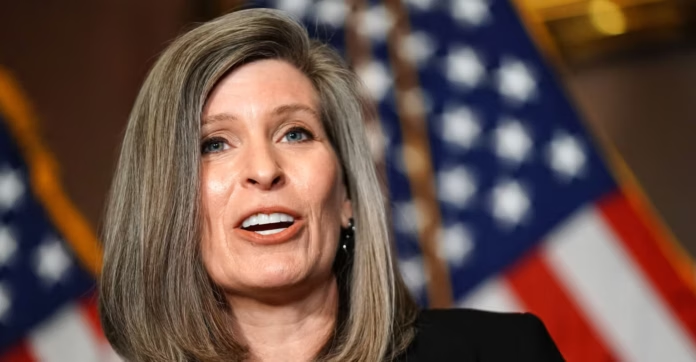The controversial senator, Joni Ernst of Iowa, stood at the middle of a political debate when she visited Butler County in May 2025. In support of the new reconciliation bill passed by Republicans, Ernst tried to explain and defend its controversial points. The encounter rapidly soured, as the senator clashed with her constituents, who were very concerned that cutbacks were planned for vital social programs like Medicaid and SNAP.
Battles Over Caring About Needy Americans and Financial Resources
There were challenging questions about Ernst’s views on the reconciliation bill which greatly reduces the amount going to Medicaid. One individual who had gotten in touch with Ernst’s office claimed the senator was working to help the wealthy because of tax shelter laws, but was removing support for vital social programs for the poor.
She argued that supporting such an organization appeared to be neither good for people nor good for the finances which sparked applause in the audience.
Ernst argued that no one included in the Medicaid cuts was actually qualified to get Medicaid in the first place. When you’re mentioning people who receive Medicaid although they are not supposed to, the total is 1.4 million and they must leave the program, the congresswoman said.
People immediately rejected what she said. After an attendee yelled “People are going to die,” Ernst simply said, “Well, it’s true, all of us will die one day.”
This statement led to loud gasps and boos which encouraged Ernst to continue talking, telling the crowd to direct their attention to those who are the most vulnerable.
Expanding the GOP’s Strategy
Nearly all Republicans supported the bill which Donald Trump had nicknamed the “big beautiful bill.” Just two Republican representatives went against their party to vote against the bill. But, the measure could struggle in the Senate. It is notable that Senator Ron Johnson from Wisconsin stated the bill is like the Titanic and he is going to do what he can to put it down.
The Congressional Budget Office projects that if the legislation passes, 7.6 million individuals would lose the ability to get health care coverage. Critics argue that the law does not treat all Americans equally and hurts mainly low-income groups, immigrants and users of government-provided support.
In spite of the criticism, Ernst tried to change the discussion. “If you prefer not to listen, that’s okay,” she said to the people. But I am explaining that if someone is not qualified or is getting benefits somewhere else, those benefits should be used somewhere else. Make sure to set aside any extra money that is not complete so qualified Medicaid patients may receive it.”
Also read: Bernard Kerik Death: Former NYPD Commissioner Known As 9/11 Hero Dies At 69
Symptoms of a Wider Issue
The clash Ernst had at a town hall reflects problems the GOP is facing in the wake of Trump winning the election. In many states, Republican legislators are facing more opposition from constituents, who are upset by suggested cuts to social programs.
There are party leaders who try to minimize the significance of these confrontations. Among the critics are many paid protesters, Speaker Mike Johnson has claimed with no evidence. According to him, the footage of town halls you saw online in many cases featured people paid to be there. “They did the same thing they used in campaign speeches which made it appear as if the happenings in Washington are unappreciated.”
This attitude was also seen in a warning from House Republicans saying members should avoid town halls because the media attention could do damage to their reelection chances.
Political Pressures
The town hall incident could have subsequent effects on Ernst’s life. Although she continues to speak on budget matters for the Republicans, her outspoken defense of some policies has caused criticism from Democrats as well as from fellow Republicans.
For those who back her, Ernst is seen as a firm fiscal conservative aiming to slash government inefficiencies. In the eyes of many of her critics, she seems dismissive and ruthless in supporting actions that could harm lots of people.
Ernst and her fellow Republicans should expect to handle legislative issues as well as increasing public opposition as the reconciliation bill advances to the Senate.People’s healthcare is at risk, the stakes involved are as high as they get.








